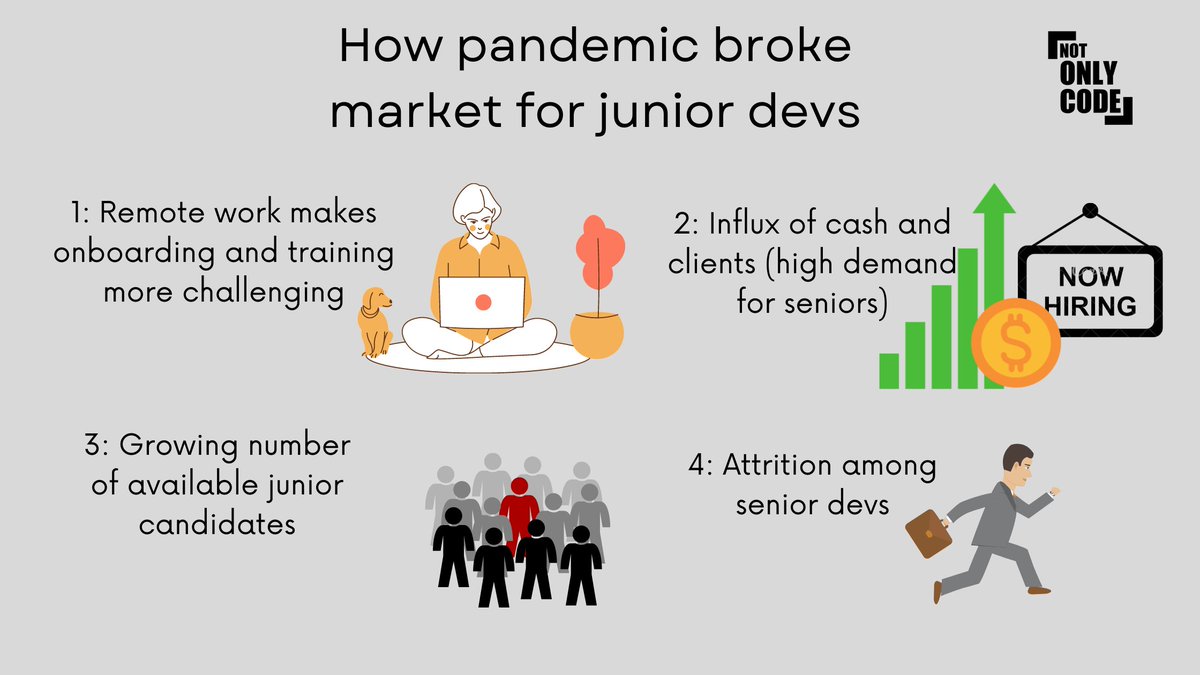
Every article about becoming a good writer says "read a lot". Yet in programming we rarely practice reading. We only read the code we have to understand in order to change, we rarely encourage each other to read and analyze some well-written code
I think coding is very much like writing and yet we don't teach it like we teach writing. We teach to produce working code, which is bare minimum. We rarely emphasize that the code is written with other developers in mind.
Some developers realize it themselves and instinctively try to make their code easier to understand, but I have seen very little focus on it at uni or bootcamps.
This year I'm planning to release a refactoring course that focuses on code readability. It's not easy to automate it, since readability is very subjective, but I hope it can be a small step towards better coding education
• • •
Missing some Tweet in this thread? You can try to
force a refresh










